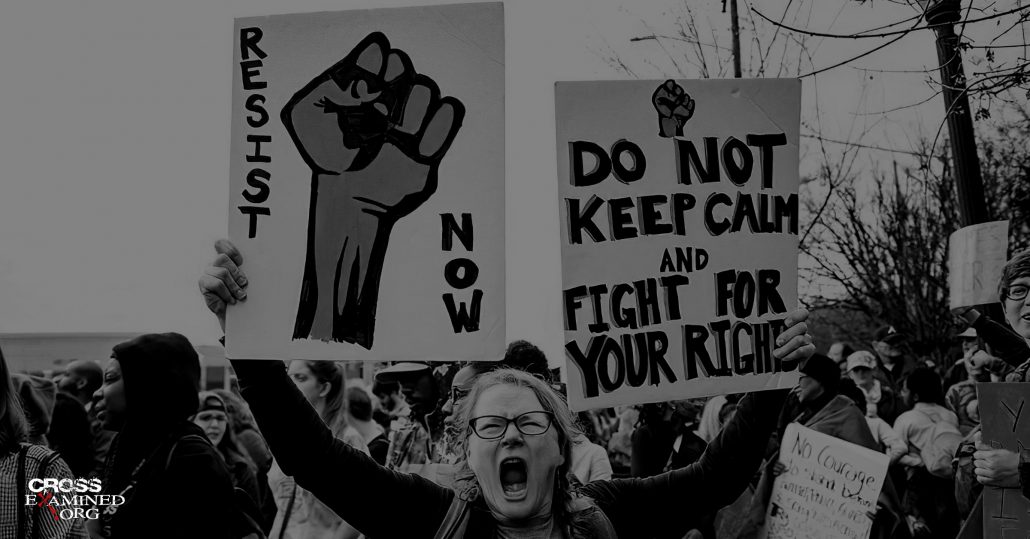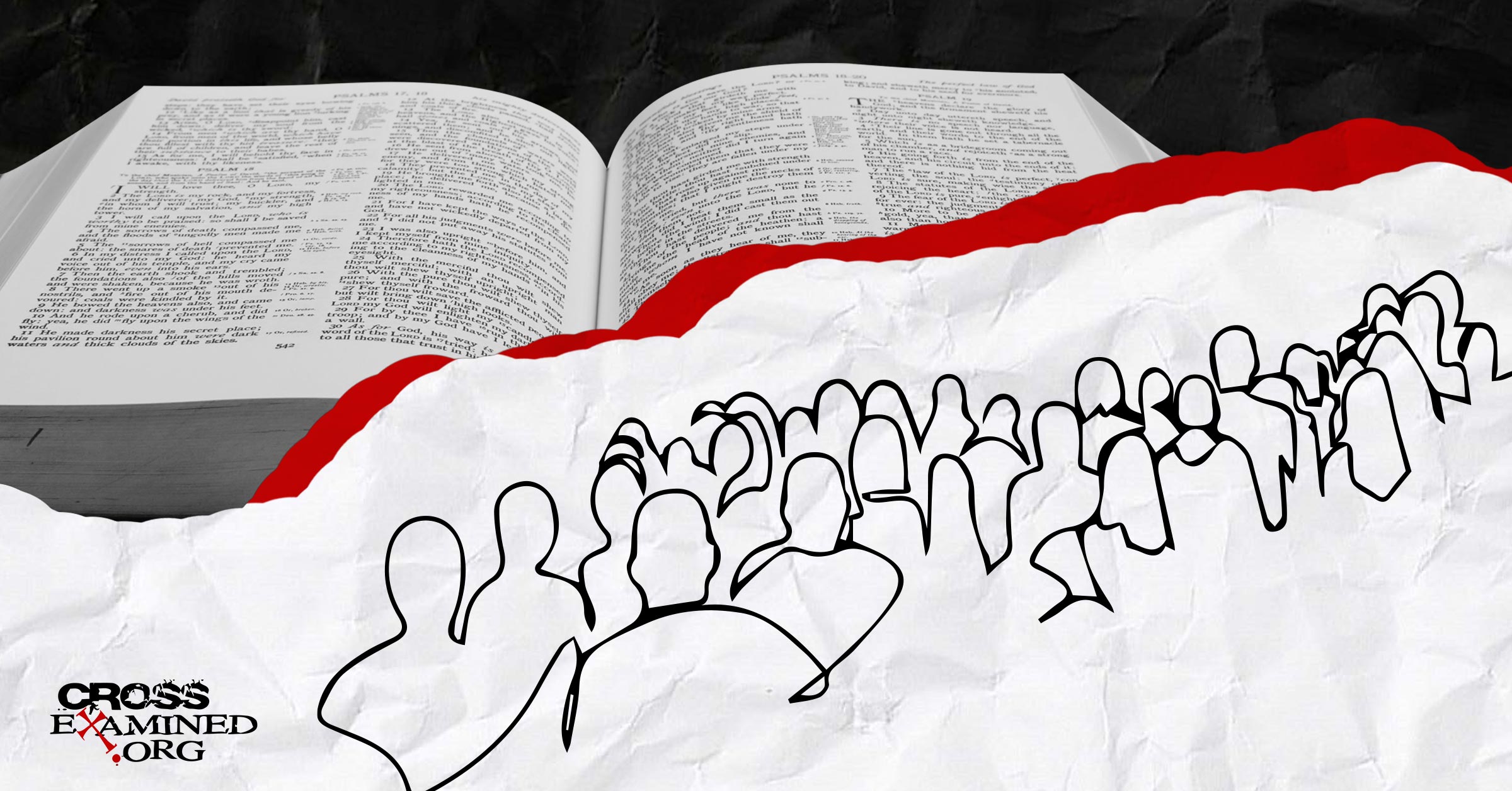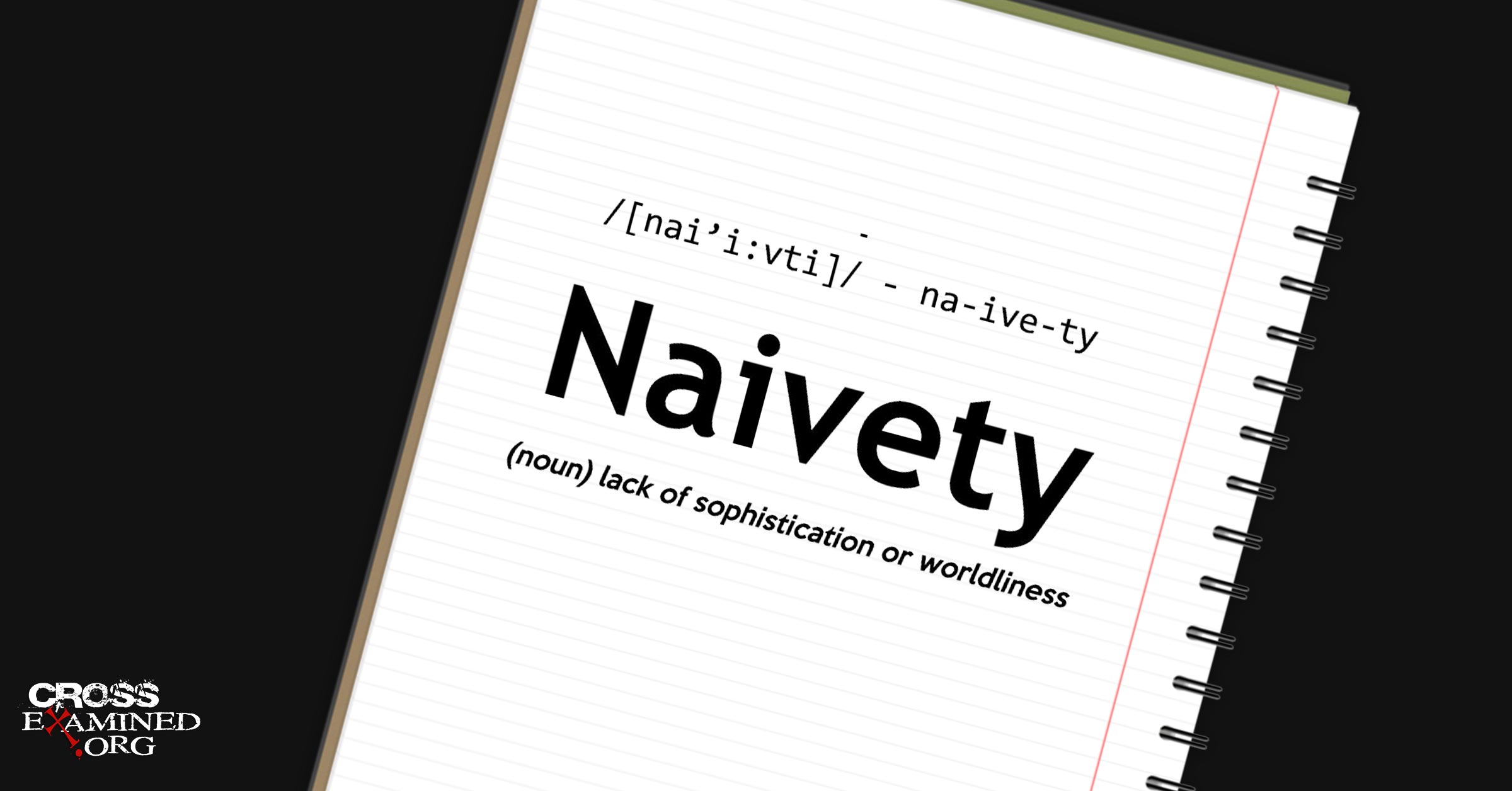Mi amiga, Alisa Childers, escribió recientemente una reseña del libro más vendido, Girl, Wash Your Face (Chica, lávate la cara), de Rachel Hollis. Esto inició una tormenta de discusiones en línea sobre lo que hace que alguien sea un autor “cristiano”, la responsabilidad que tiene un autor que se identifica como cristiano en la promoción de ideas coherentes con la fe bíblica, y el daño que puede haber para los cristianos que leen libros que contienen ideas no bíblicas.
Personalmente no he leído el libro, así que no voy a comentar sobre el mismo específicamente. Pero sí diré que me decepcionó y entristeció mucho ver el tipo de comentarios que escribieron los partidarios del libro:
“No pretendía ser un devocional”.
“Ella no está enseñando teología”.
“Nuestro trabajo no es perseguir a la gente y odiarla”.
“¡Dejen de competir! ¡Imagínense lo que los no cristianos piensan de los Super Jueces! Tenemos que centrarnos en nuestro interior porque el proyecto dentro de nosotros mismos es el trabajo más importante que vamos a realizar. No utilices tu blog para hundir a alguien”.
Desafortunadamente, estos comentarios son representativos de la falta de discernimiento que es común en la iglesia de hoy. Si Alisa caracterizó con justicia las afirmaciones del libro de Hollis, éste está promoviendo ideas que entran en conflicto con una cosmovisión bíblica. Y cuando existe la preocupación de que millones de mujeres están consumiendo contenido de un autor cristiano que puede llevarlas a abrazar ideas no bíblicas, deberíamos levantar una bandera de advertencia y hacer un llamado al discernimiento en el cuerpo de Cristo.
No se trata de ser un “Super Juez”.
Se trata de discernir la verdad bíblica de lo que no lo es… algo que la Biblia nos dice constantemente que hagamos.
Aunque este artículo no está directamente relacionado con la crianza de los hijos (sobre lo que normalmente escribo), es algo que afecta a la crianza de los hijos. Cuando los padres incorporan fácilmente ideas populares pero no bíblicas en su cosmovisión, esas ideas afectarán la forma en que crían a sus hijos y la naturaleza de la cosmovisión que transmiten.
Las siguientes son 10 señales de que los autores cristianos que sigues pueden estar enseñando sutilmente ideas no bíblicas. Digo “sutilmente” porque creo que la mayoría de la gente detectaría un problema inmediatamente si un cristiano dijera que no cree en la Trinidad. Pero es igualmente importante identificar cuando se presentan señales de advertencia menos obvias, como las siguientes.
1. Dicen: “Amo a Jesús pero…”
Se ha hecho popular que los escritores pregonen que aman a Jesús pero (rellene el espacio en blanco). Cuando veas que una frase empieza así, prepárate para una de estas dos cosas.
En primer lugar, puede ser algo que el autor sabe que es contrario a lo que Jesús habría aprobado. Por ejemplo, si buscas en Google “Amo a Jesús pero”, encontrarás toda una industria de camisetas, tazas y otras cosas que dicen “Amo a Jesús, pero me gusta maldecir”. ¿Es esto realmente algo que glorifica al Dios que dices amar? Si tienes que usar “pero” como palabra de contraste entre amar a Jesús y hacer una declaración sobre lo que haces y/o dices, probablemente no es algo de lo que estar orgulloso. Cuando los autores hacen esto para ser más agradables a su audiencia, a menudo es una señal de que seguirán otras ideas no bíblicas.
En segundo lugar, puede ser algo que no está en contraste con amar a Jesús en absoluto, pero el autor quiere que pienses que son diferentes al estereotipo negativo de los cristianos. Por ejemplo, dirán algo como: “Amo a Jesús, pero nunca afirmaré que tengo todas las respuestas”… implicando, por supuesto, que los cristianos normalmente afirman que tienen todas las respuestas. Los no creyentes pueden pensar que los cristianos se sienten así porque los cristianos creen que el cristianismo es una cuestión de verdad objetiva, pero eso no significa que los cristianos afirman tener todas las respuestas o que la aceptación de la verdad objetiva sea problemática.
2. Se empeñan en separar la relación con Jesús de la religión
Desafortunadamente, la idea de que Jesús de alguna manera odia la religión se ha hecho popular incluso entre los cristianos que, por lo demás, tienen creencias bíblicamente sólidas. Si Jesús realmente odiara la religión, la popularidad de esta idea no sería un problema. El problema es que Jesús no odia la religión. Él odia la falsa religión. Sin escribir un artículo entero sobre esto (hay un capítulo entero en mi próximo libro sobre esto), la conclusión es que no hay necesidad de separar a Jesús de la religión que es verdadera. El cristianismo es simplemente el nombre de la religión cuyo conjunto de creencias se centra en quién es Jesús y que nos llama a conocerlo, adorarlo, servirlo y obedecerlo. En otras palabras, el cristianismo es una religión centrada en una relación.
Cuando los autores empiezan a escribir negativamente sobre la “religión organizada” en general, y la ponen en oposición a su propia relación personal con Jesús, a menudo es porque van a 1) desafiar la idea de la verdad objetiva (sugiriendo así que la creencia religiosa uniforme que se encuentra en la “religión organizada” es mala) y/o 2) valorar sus percepciones espirituales personales por encima de la revelación de Dios a la humanidad a través de la Biblia (la experiencia personal se convierte en autoridad).
La verdadera religión glorifica a Dios (Santiago 1:27) y no es algo que los cristianos deban denunciar.
3. Hay mucho de qué hablar sobre la autenticidad y el desorden
Autenticidad significa simplemente honestidad. A primera vista, no parece que eso tenga nada que ver con la Biblia y, en todo caso, parece que debería ir de la mano de la Biblia. Sin embargo, en la práctica, los autores que enfatizan lo “desordenadas” que son sus vidas y lo “auténticos” que van a ser con usted acerca de ese desorden, a menudo aprovechan la oportunidad para normalizar el pecado.
Como con varios de estos puntos, no siempre es así. Algunos autores que hablan en estos términos lo utilizan como una oportunidad para volver hacia Dios. Pero he visto que la mayoría de las veces es al revés, por lo que entra en la lista.
4. Promueven el valor de las preguntas por encima del valor de las respuestas
Otro enfoque de la “espiritualidad” que se ha puesto de moda es centrarse más en plantear preguntas sobre la fe que en compartir respuestas bíblicas. Los autores que se identifican como cristianos progresistas a veces llegan a acusar a otros cristianos de tener miedo a las preguntas y miran con escepticismo a cualquiera que intente responder a las preguntas que ellos plantean.
Ahora bien, si has leído mi blog durante algún tiempo (o mis libros, en realidad), sabes que estoy a favor de plantear preguntas difíciles sobre la fe con tus hijos… las preguntas son extremadamente importantes. Pero las preguntas también deben ser abordadas en la medida de lo posible, teniendo en cuenta lo que la Biblia nos dice.
Las personas que valoran más las preguntas que las respuestas suelen sentirse incómodas con la idea de la verdad objetiva, es decir, que existe una verdad independiente de nuestra experiencia personal. Todo lo que Jesús enseñó asumió que existe una verdad independiente de nuestra experiencia personal y que Él es esa verdad. Si un autor se siente incómodo con la idea de la verdad objetiva, se siente incómodo con Jesús.
5. Confunden declaraciones incontrovertibles con posiciones morales
Una autora muy popular escribió hace poco en su página de Facebook que quería dejar muy clara su posición en temas sociales. Aclarar estas cosas incluía hacer una declaración completamente incontrovertible para cualquier cristiano: ella “aprecia la humanidad de la comunidad LGBT”.
Todos los cristianos deberían apreciar la humanidad de cada comunidad porque todos estamos hechos a imagen de Dios.
Eso nunca se ha cuestionado.
Pero, por supuesto, ella dijo esto implicando que cualquiera que sostenga una visión bíblica del matrimonio de alguna manera no aprecia la humanidad de la comunidad LGBT. Es un movimiento muy engañoso hacer una afirmación con la que ningún cristiano debería estar en desacuerdo con el fin de sugerir que es algo con lo que no estarían de acuerdo quienes adoptan una posición diferente a la de la autora en una cuestión moral.
6. Se centran casi por completo en la acción cristiana, excluyendo la creencia
Alguien recientemente me dijo que la gente de su denominación no valora la apologética (por qué hay buenas razones para creer que el cristianismo es verdadero) porque su apologética está en sus acciones. Esta actitud, efectivamente, es la que se ve con muchos autores cristianos populares hoy en día, incluso cuando no dicen nada sobre la apologética específicamente. Para ellos, el cristianismo tiene que ver con lo que uno hace en el mundo; ya no se trata de creer en Jesús como Señor y llegar a un conocimiento salvador de Él. Este tipo de cristianismo apenas se diferencia del humanismo secular. Sólo viene con un aprecio por Jesús, cariñoso pero relativamente leve, en la parte de arriba… como una cereza caramelizada en un helado de buenas obras que se puede quitar fácilmente.
La Biblia es clara en cuanto a que la creencia importa… de una manera eternamente significativa. Para más información sobre esto, vea mi artículo, Is How We Live More Important Than What We Believe? (¿Es más importante cómo vivimos que lo que creemos?)
7. Utilizan la palabra “fe” para referirse a una especie de sistema de creencias sin límites sobre Dios
Una autora cristiana exitosa en ventas compartió recientemente la siguiente cita en las redes sociales: “La fe no es una creencia. La fe es lo que queda cuando todas tus creencias se han ido al infierno”. Esto, tristemente, fue recibido con miles de me gusta, me encanta y compartidos. También es una definición bíblica inexacta de la fe.
La Biblia no presenta la fe como una creencia ciega o como creer a pesar de la evidencia. La Biblia muestra repetidamente que la fe es creer en lo que tienes buenas razones para creer que es verdad.
La fe bíblica no son los pedazos rotos que quedan cuando has perdido un montón de otras creencias, como sugiere esta cita. Cada vez que veas que un autor promueve una idea inexacta de la fe, debería ser una bandera de advertencia. En este caso, la autora es conocida por escribir libros sobre sus luchas con la Biblia. No es de extrañar que comparta una cita de este tipo.
8. Regularmente te animan a “ser fiel a ti mismo”
Si escuchas con frecuencia de un autor que debes ser fiel a ti mismo, puedes apostar a que está en un terreno teológico inestable. Como dijo mi hija de 9 años cuando le pregunté si creía que la gente debería ser fiel a sí misma: “No deberías ser siempre fiel a ti mismo, porque si quieres ser un asesino eso estaría muy mal” #lógicabásica
Sencillamente, este tipo de sabiduría secular de “valerse por sí mismo” es solo eso… secular. No es muy inspirador ser más fiel a uno mismo. Como cristianos, deberíamos inspirarnos en ser menos como nuestra naturaleza pecadora y más como Jesús.
9. Consideran que juzgar a los demás es el pecado máximo
Para muchas personas hoy en día, el pecado máximo es juzgar a otro. Jesús no nos dice que no juzguemos… Nos dice que no juzguemos hipócritamente y que juzguemos con juicio justo (por ejemplo, Juan 7:24). Amigos, ¡tenemos que discernir! Discernir entre la verdad y la que no lo es no significa que se esté condenando espiritualmente a una persona, como la gente suele creer. Sólo Dios conoce el corazón humano, y de seguro no estamos llamados a determinar si otra persona es salva. Pero sí podemos y debemos abordar lo que dice la Biblia sobre la creencia correcta y la acción correcta. Si sigues a alguien que dice cosas como: “¡No te quedes si quieres juzgar a otros!” “¡Nuestro trabajo no es juzgar, es amar!” o “¡Esta es una zona libre de juicios!” aléjate. Es probable que signifique algo muy diferente de lo que crees.
10. Hacen afirmaciones sobre lo que significa amar a los demás sin abordar lo que significa amar a Dios
Cuando seguimos el mayor mandamiento -amar a Dios-, esto informa lo que significa seguir el segundo mandamiento -amar a los demás-. No nos corresponde a nosotros definir la palabra. Hay muchos autores (que se identifican a sí mismos como cristianos) hoy en día que defienden ideas no bíblicas de lo que significa amar a los demás, y está arraigado en la ignorancia del mandamiento de amar primero a Dios. Esta semana vi a uno de estos autores decir que los cristianos no tienen amor por oponerse al aborto, por ejemplo. Pero cuando amamos primero a Dios y comprendemos que estamos hechos a su imagen y que cada ser humano, por lo tanto, tiene un valor extraordinario, simplemente no podemos llegar a la conclusión de que amar a los demás significa permitirles quitar la vida a otro ser humano, sin importar la circunstancia.
Velen. Pónganlo todo a prueba. Y aférrense a lo que es bueno y verdadero.
Recursos recomendados en Español:
Robándole a Dios (tapa blanda), (Guía de estudio para el profesor) y (Guía de estudio del estudiante) por el Dr. Frank Turek
Por qué no tengo suficiente fe para ser un ateo (serie de DVD completa), (Manual de trabajo del profesor) y (Manual del estudiante) del Dr. Frank Turek
__________________________________________________________________________________________________________________________________________________
Natasha Crain es una bloguera, autora y oradora nacional que siente pasión por equipar a los padres cristianos para educar a sus hijos en la comprensión de cómo presentar un caso y defender su fe en un mundo cada vez más secular. Es autora de dos libros de apologética para padres: Talking with Your Kids about God (Hablando con tus hijos sobre Dios) (2017) y Keeping Your Kids on God’s Side (Manteniendo a tus hijos del lado de Dios) (2016). Natasha tiene un Maestría en marketing y estadísticas en la UCLA y un certificado en apologética cristiana de la Universidad de Biola. Ex ejecutiva de mercadotecnia y profesora adjunta, vive en el sur de California con su esposo y sus tres hijos.
Blog Original: https://cutt.ly/PET5lk1
Traducido por Yatniel Vega García
Editado por Elenita Romero













